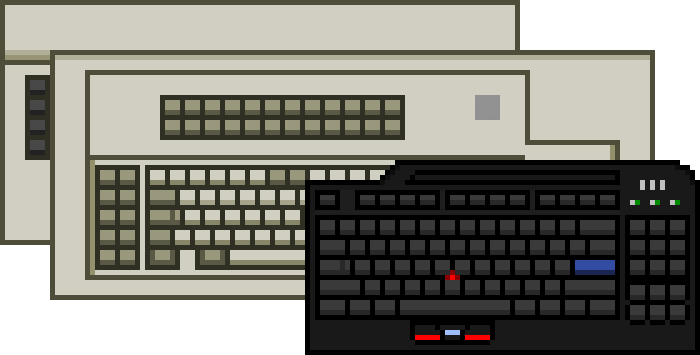P/N 1392560 - Model M Keyboard Details & Specs
Provided by the ASK Keyboard Part Number Database
IBM PS/2 50-key Function Keyboard
| FRU part number | 1392559 |
|---|---|
| CSA part numbers | 1392554 |
| Type | Model M PS/2 50-Key Function Keypad |
| Nickname | M50 |
| OEMs or ODMs | IBM, Lexmark |
| Keyswitches | IBM membrane buckling springs |
| Earliest appearance | |
| Original keycaps | Transparent ABS |
| Cover colour | Pearl White |
| Branding | IBM grey oval badge Or IBM blue oval badge |
| Feet | Single-setting flip-out feet |
| Protocol | IBM Mode 2 (scancode set 2) |
| Connection | Grey coiled-style detachable 6-pin SDL to 6-pin mini-DIN PS/2 cable |
| Number of keys | 50 |
| Form factor | 50% matrix |
| Layout & language | Relegendable |
| Sources | Image: Rear label example from 1995-12-14 by Lexmark United States |
| Related Directory entries | IBM 50-key Keyboard (aka IBM Model 100 Functional Keypad Emulator) |
| Data last updated |

